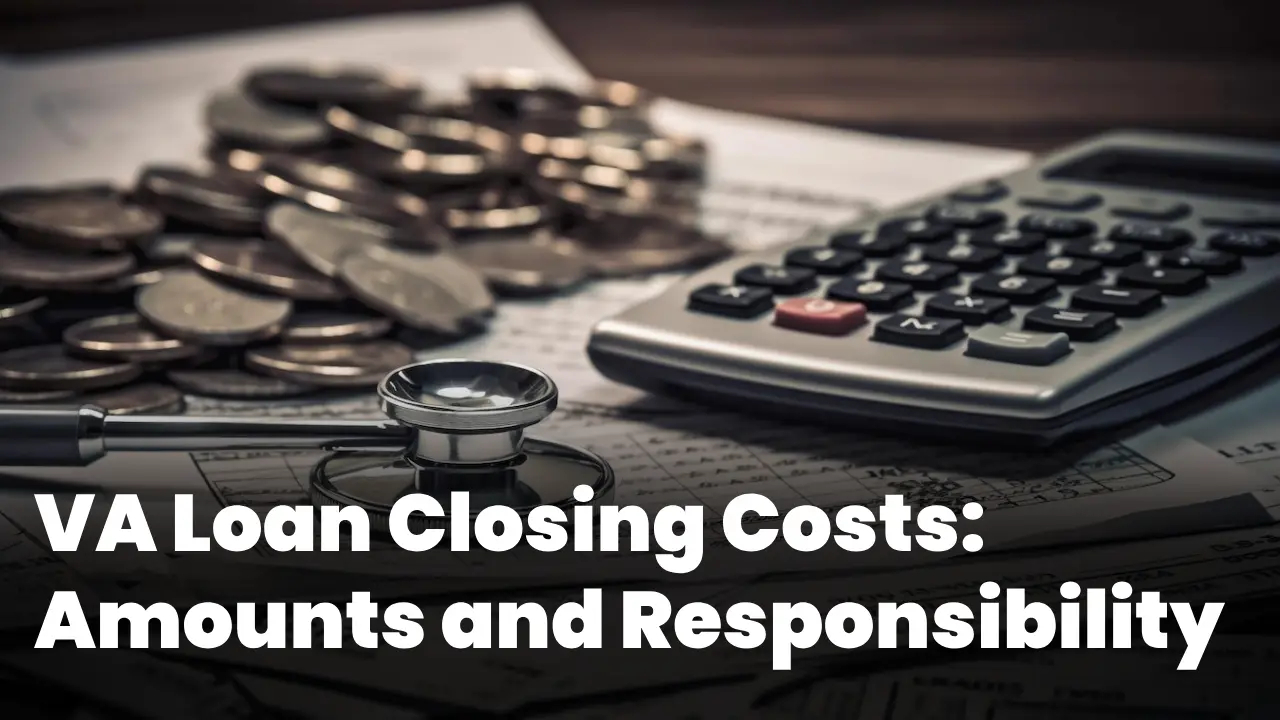When considering a VA (Veterans Affairs) home loan, it’s important to understand the associated closing costs. Closing costs are the various fees and expenses that arise during the process of finalizing a real estate transaction. They cover a range of services and are an essential aspect of the homebuying process. In this article, we will delve into the details of VA loan closing costs, including what they typically include, their amounts, and who is responsible for paying them.
What Are VA Loan Closing Costs?
Closing costs encompass a variety of charges that arise when a real estate transaction is completed. They are typically paid at the closing of the loan, which is the final step in the homebuying process. These costs are separate from the down payment and include fees for services provided by various parties involved in the transaction, such as the lender, title company, and government entities.
Read More: Mortgages Loan Types In USA
Breakdown of VA Loan Closing Costs
VA loan closing costs can vary based on factors such as the location of the property, the lender’s policies, and the specific transaction details. While exact amounts can differ, here are some common types of closing costs associated with a VA loan:
VA Funding Fee: This is a mandatory cost that goes directly to the Department of Veterans Affairs. It helps offset the costs of the VA loan program. The fee’s amount varies based on factors like the type of service, down payment amount, and whether it’s the borrower’s first VA loan. Disabled veterans may be exempt from this fee.
Appraisal Fee: The lender will require an appraisal to assess the property’s value. This fee covers the cost of the appraisal report.
Origination Fees: These are charged by the lender for processing the loan application. They can vary but are generally around 1% of the loan amount.
Title Charges: These fees relate to the title search, title insurance, and other services provided by the title company to ensure the property’s legal ownership.
Recording Fees: These are charges for recording the home’s sale and title transfer with the local government.
Prepaid Items: These include costs like property taxes, homeowners insurance, and prepaid interest that are paid upfront at closing.
Credit Report Fee: The lender will assess the borrower’s creditworthiness, which involves a credit report that comes with a fee.
Survey Fee: This fee covers the cost of verifying the property’s boundaries and dimensions.
Home Inspection Fee: While not required by the VA, it’s recommended to get a home inspection to identify any potential issues. The fee covers the cost of the inspection.
Who Pays VA Loan Closing Costs?
One of the advantages of a VA loan is that the program limits what closing costs veterans can pay. This means that certain closing costs must be paid by the seller or the lender, and the veteran is protected from some of the fees. However, veterans can still pay some of the typical closing costs, such as appraisal fees, prepaid items, and credit report fees.
It’s important to note that while the seller can pay for some of the closing costs, they are not required to do so. The terms of who pays which costs can be negotiated between the buyer and seller as part of the purchase agreement.
How are VA loan closing costs different?
VA loan closing costs differ by limiting certain fees veterans must pay. Sellers or lenders cover some costs, protecting veterans from additional financial burden during the homebuying process.
FAQ’s
Can closing Costs be included in a VA loan?
Yes, closing costs can be included in a VA loan through methods like a seller concession, lender credit, or increasing the loan amount, easing upfront financial burden for veterans.
How much are closing costs in va?
Closing costs for VA loans typically range from 2% to 5% of the home’s purchase price. Amounts vary based on factors such as location, loan amount, and specific transaction details.
How to get rid of closing costs with a va loan?
Closing costs with a VA loan can be avoided by negotiating for a seller to cover them, opting for a lender credit, or including them in the loan amount, lessening upfront expenses.
Who pays closing costs on a va loan?
Closing costs on a VA loan can be paid by the seller, the lender through a credit, or the buyer by including them in the loan amount.
Can I roll closing costs into my va loan?
Yes, you can roll closing costs into your VA loan by increasing the loan amount, which can help manage upfront expenses when purchasing a home.
Conclusion
VA loan closing costs are an integral part of the homebuying process, covering various fees associated with finalizing the loan and property transfer. Understanding what these costs include, their potential amounts, and who is responsible for paying them is crucial for veterans considering a VA home loan. Working closely with a knowledgeable lender and real estate professional can help veterans navigate these costs and make informed decisions when purchasing a home using a VA loan.







